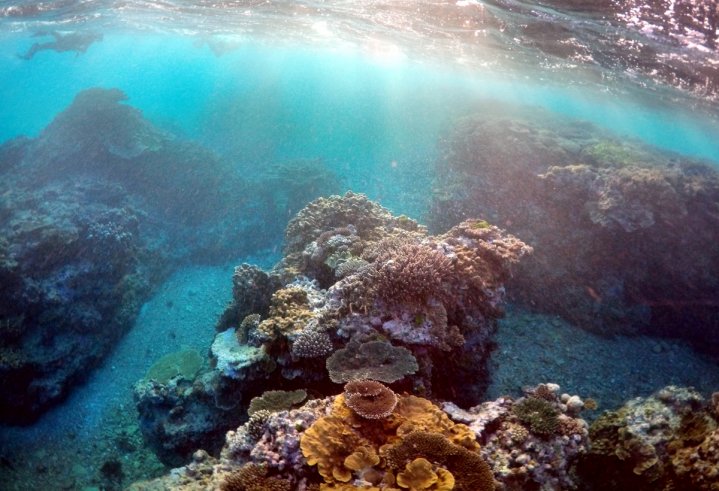
Australia's most scenic Great Barrier Reef is fading at catastrophic rates, says study. Further, researchers say, the only way to save the world's largest coral reef system from heat-induced bleaching is a war on global warming.
The Great Barrier Reef Marine Park Authority and researchers from the Australian Institute of Marine Science spent six hours flying over the reef between Townsville and Cairns, Australia. The survey found that bleaching is occurring in the central point of the park, which had escaped severe bleaching last year, according to a statement from the Marine Park Authority.
The vibrant colors, which draw thousands of tourists to the Great Barrier Reef each year, are now fading away because of the rapid rise in water temperatures. Eventually, the corals are expected to get completely bleached leaving behind a dull pallor. Marine Park Authority Director of Reef Recovery Dr. David Wachenfeld said the survey confirmed anecdotal reports from visitors and reef surveys of bleaching from marine park rangers and commercial operators.
"Mass bleaching is occurring on the Great Barrier Reef for the second consecutive year. How this event unfolds will depend very much on local weather conditions over the next few weeks. Importantly, not all bleached coral will die. As we saw last year bleaching and mortality can be highly variable across the 344,000 square kilometer Marine Park — an area bigger than Italy," he added in his official statement.
Dr. Neal Cantin from the Australian Institute of Marine Science (AIMS) noted that the recurrence of widespread coral bleaching in back-to-back summers indicated there was not enough time for the corals to fully recover from last year's extreme heat event. "We are seeing a decrease in the stress tolerance of these corals. This is the first time the Great Barrier Reef has not had a few years between bleaching events to recover. Many coral species appear to be more susceptible to bleaching after more than 12 months of sustained above-average ocean temperatures," he observed.
Marine Park Authority experts and scientists from the ARC Centre of Excellence for Coral Reef Studies will resurvey 1150 reefs along the entire Great Barrier Reef next week. The Marine Park Authority is working with AIMS to develop standardised operating practices to ensure a consistent approach to the scientific assessment of the extent and impact of bleaching events.
Meanwhile, the hashtag #GreatBarrierReef is trending on the social sites. Environment specialists are using the tag to create awareness on the alarming situation across the globe.









